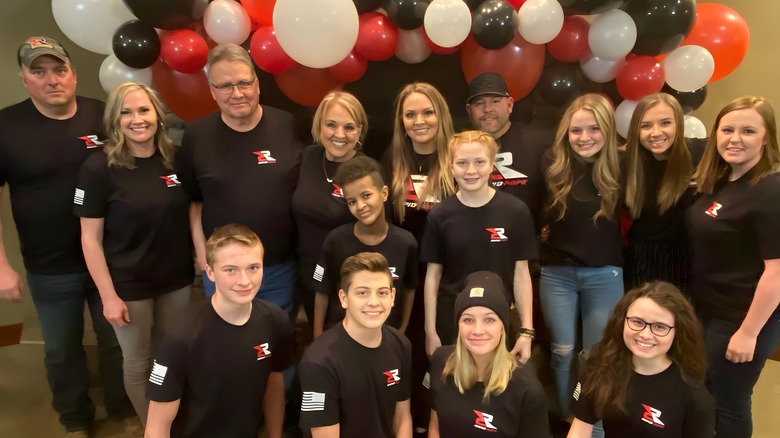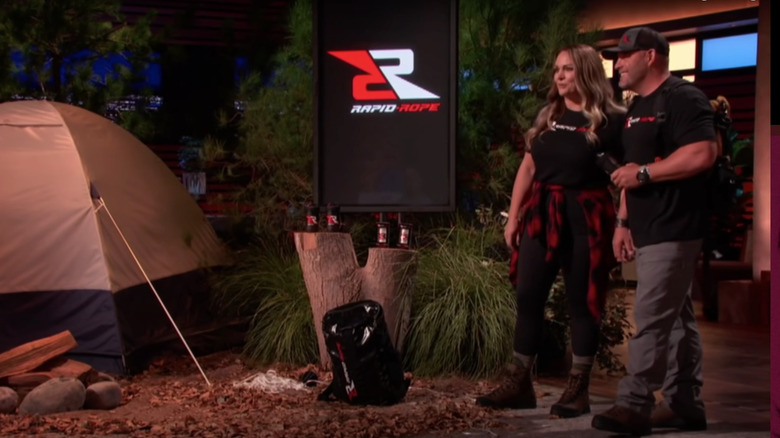Travel Guides Outdoor Adventures
Nicole Cord-Cruz
Husband and wife entrepreneurs Chris and Geanie Rodgers, both of whom have an affinity for the great outdoors, have always found it frustrating that no rope is truly user-friendly. While there is a deluge of durable, military-grade ropes available in the market, they often end up being a tangled mess. That’s when the idea of Rapid Rope came to life.
Rapid Rope is a special kind of utility rope stashed inside a canister to avoid any pesky tangles. Whenever you find the need for a string — whether for camping, gardening, or housework — you simply pull the desired length of rope from the container and use the built-in knife to snip the top. “The theory behind it is you still have your utility rope you can use, and you have no knots that come out. It’s kind of like dental floss on steroids,” Chris told Central Oregonian of their invention. “It’s kind of like duct tape. It has 101 uses, and you always have it with you. You can use it for anything or everything. There are endless uses.” The rope boasts 120 feet of length and 1,100 pounds of tensile strength, making it handy for various use cases.
The Rodgerses joined “Shark Tank” on Season 11, Episode 12, with the hope of striking a deal with an investor that could help take their business to new heights — not just to rake in more revenue but also to give back to the causes they supported. Luckily, their efforts paid off, thanks to Barbara Corcoran.
The Rodgerses impressed the sharks with their passion
Chris and Geanie Rodgers entered the “Shark Tank” arena with a lofty goal: Raising $200,000 in exchange for a 20% stake in the Rapid Rope business. They left no stone unturned with their pitch, even enlisting a friend to act as a zombie to prove that their product was strong enough to ward off an attack. They impressed the Sharks with their numbers, too — they had $172,00 in lifetime sales, backed by a personal investment of $115,000.
The Rodgerses were also honest about having struggled at the start. They shared that they initially had to put the business on pause when their adopted son from Ethiopia was diagnosed with colitis. Once they nursed him back to full health, they built a school in his name and ran charity events to raise money for children in Africa. Their generosity moved the sharks, but admittedly, none of them had the expertise to blow up the product. However, guest shark Rohan Oza pledged a $10,000 donation to support their cause.
Ultimately, Barbara Corcoran, who admitted that she doesn’t share the same passion for the outdoors, made an offer anyway. “I’ve fallen in love with you, which is not a good reason to make a business decision at all,” she said. “Except ironically, my best decisions on this show have been from my heart.” She ended up offering the $200,000 the couple wanted in exchange for 30% of the company, which they gratefully accepted.
Rapid Rope continues to rope in patrons

Instagram/rapid_rope
Rapid Rope has managed to thrive years after first appearing on “Shark Tank” in 2020. Judging from Chris and Geanie Rodgers’ updates on their social media accounts, the brand remains a family-run enterprise. Notably, in June 2023, the business inked a deal with Lowe’s Home Improvement to distribute its product to stores nationwide.
The company launched a newer, smaller iteration of Rapid Rope in November 2021 called the Rapid Rope Mini. It’s a more compact version of the original, with 70 feet of rope inside the canister. Like the OG, it also comes in four different colors. As of this writing, both versions are available on Amazon with rave reviews, in addition to being sold through retail.
In a lengthy Instagram post, the Rodgeses shared that they picked up a lot of valuable lessons about running a business since their stint on the show. “We learned so much in 2020, some difficult lessons, lots of frustrating situations, many disappointments watching our children miss out on the things they love,” they wrote. “However, we learned that we can do really hard things. We learned to prioritize what really matters. And we worked hard as a family to grow our business!”

